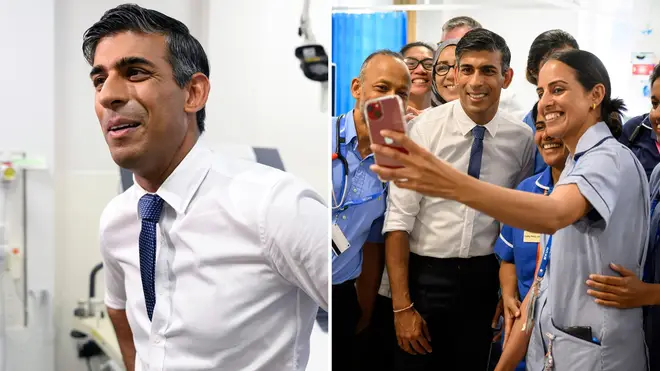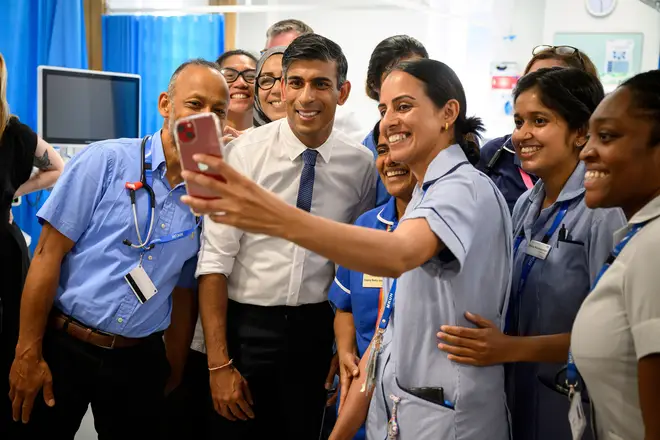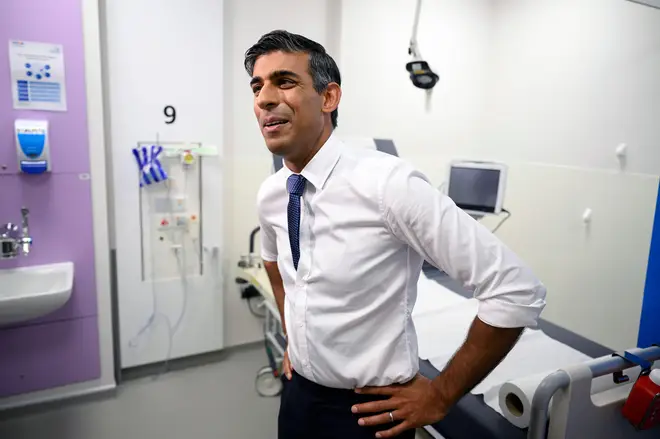
Ben Kentish 10pm - 1am
15 August 2023, 13:54

Rishi Sunak has said people can expect to ‘see the benefit in their bank accounts’ as inflation comes down.
The prime minister said there is ‘light at the end of the tunnel’ for people struggling with the cost of living.
Speaking on a hospital visit in Milton Keynes, Mr Sunak said: “It’s important that we stick to the plan. The plan is working. I think there is light at the end of the tunnel.
“If we get through this, people will really start to see the benefit in their bank accounts, in their pockets, as inflation starts to fall.”

His comments come after figures showed the rate of UK unemployment increased in the three months to June - while pay grew at the fastest rate since records began.
The Office for National Statistics (ONS) said the unemployment rate hit 4.2% during the quarter, up 0.3 percentage points from the previous three-month period.
It is the highest since the three months to October 2021, the ONS said, and brings the measure above pre-pandemic levels.
The statisticians said regular pay, which excludes bonuses, reached 7.8% compared to a year earlier.\

"This is the highest regular annual growth rate we have seen since comparable records began in 2001," they said.
In real terms, regular pay rose 0.1% for the year when adjusting for Consumer Prices Index including owner occupiers' housing costs (CPIH) inflation.
It is the first time since October 2021 that real wages have increased, the ONS added.
But when adjusting for Consumer Prices Index (CPI) inflation, the measure was still 0.6% down on the year. That is the smallest reduction since November 2021.
The data shows the number of payrolled employees increased by 97,000 to 30.2 million in July, although the ONS said this is a "provisional estimate and is likely to be revised when more data are received next month".
Chancellor Jeremy Hunt said: "Thanks to the action we've taken in the jobs market, it's great to see a record number of employees.
"Our ambitious reforms will make work pay and help even more people into work - including by expanding free childcare next year - helping to deliver on our priority to grow the economy."
ONS director of economic statistics Darren Morgan said: "The number of unemployed people has risen again while the number of people working has fallen back a little.
"This is mainly due to people taking slightly longer to find work than those who started job hunting in recent months.
"The drop in those neither working nor looking for work is mainly among those looking after their family or home.
"Meanwhile the number of people prevented from working by long-term sickness has risen again to a new record.
"Job vacancies have now fallen over a quarter of a million since this time last year. However, they remain significantly above pre-Covid levels.
"Earnings continue to grow in cash terms, with basic pay growing at its fastest since current records began.
"Coupled with lower inflation, this means the position on people's real pay is recovering and now looks a bit better than a few months back."